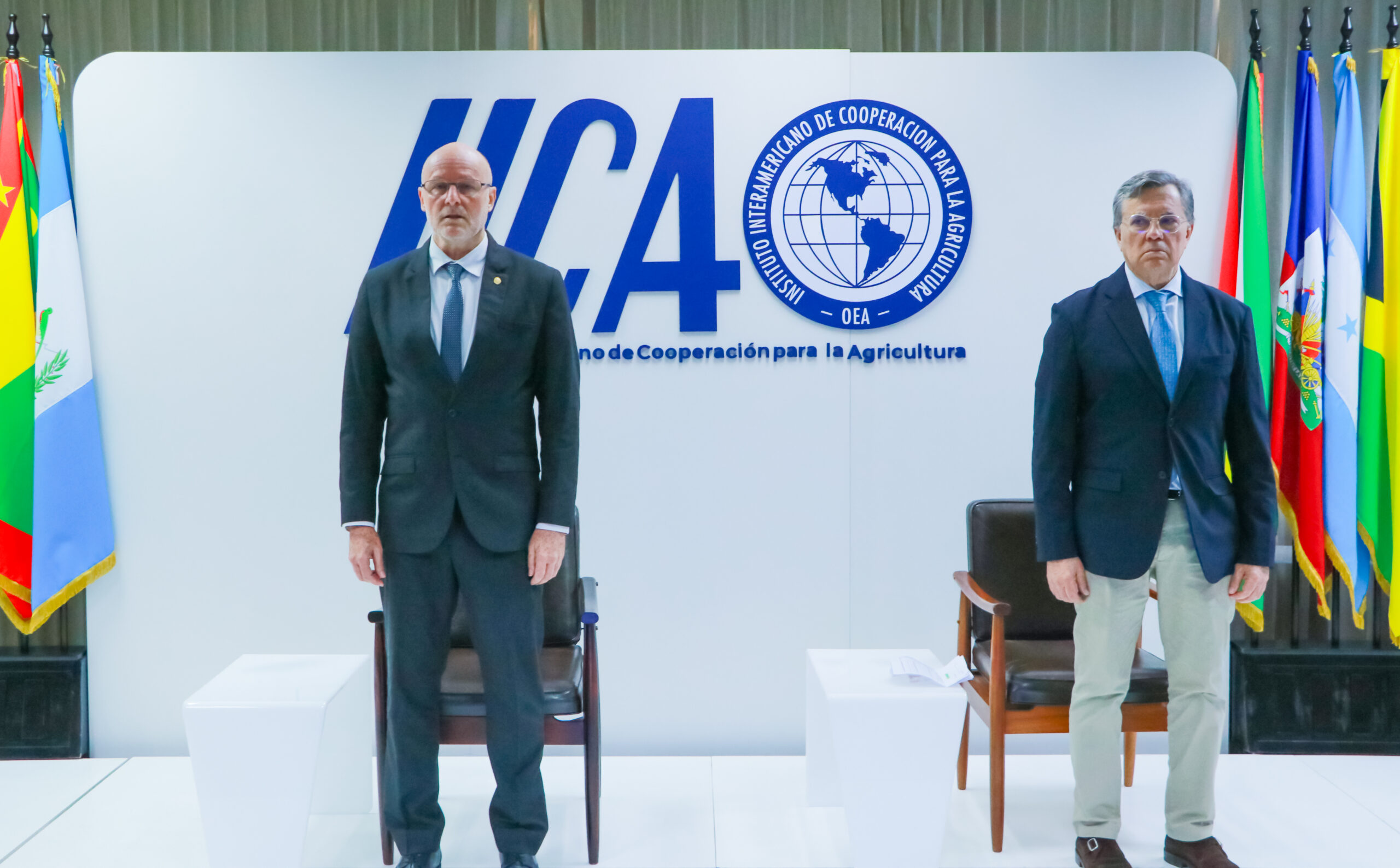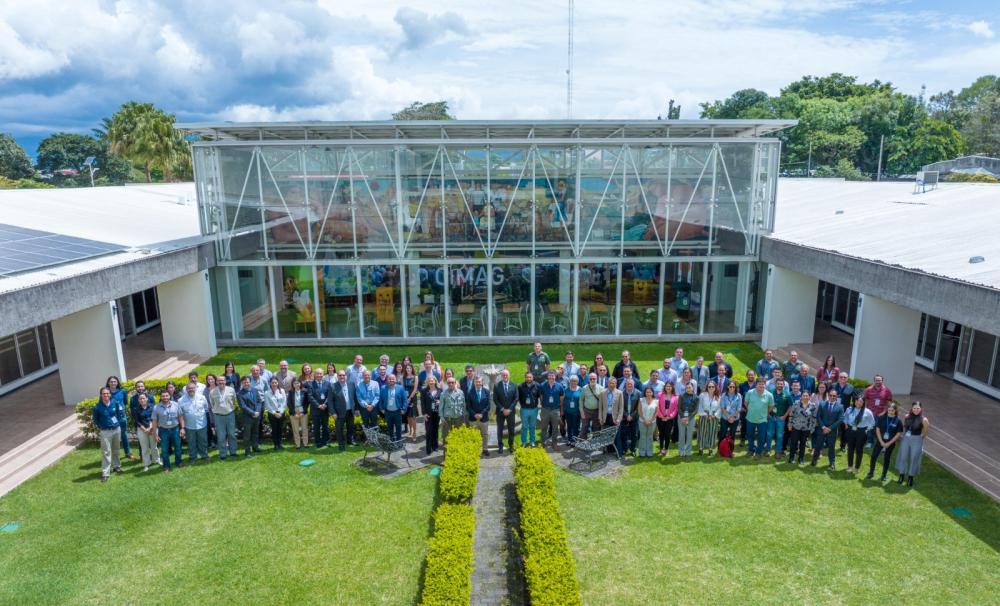The use of waste from pineapple and coffee production will be key for biogas production, contributing to the transformation of the country’s energy matrix.

San José, 3 July 2024 (IICA). The Ministry of Environment and Energy (MINAE) of Costa Rica is drawing up a National Biogas Strategy with assistance from several organizations and the support of the Inter-American Institute for Cooperation on Agriculture (IICA).
The process was launched at IICA Headquarters in San José, with the participation of the Vice President of Costa Rica, Stephan Brunner; the Institute’s Director General, Manuel Otero; the Deputy Resident Representative of the United Nations Development Programme (UNDP), Kifah Sasa; the Director of Fuel Transportation and Marketing at MINAE, Alberto Antillón; and the President of the Costa Rican Biogas Association (ASOBIOGÁS), Juan Pablo Rojas.
The national strategy will chart the path for the development, use and transportation of clean energy and biogas fuels, especially those produced from wastewater, everyday solid waste, and agricultural and agroindustrial waste.
Some of the points that will be addressed in drawing up the roadmap of the National Biogas Strategy are the establishment of the key actors who will take charge of the process, the concrete actions to be implemented, and the regulations and legislation that need to be amended.
The initiative marks another step in Costa Rica’s National Decarbonization Plan, which is designed to help the country achieve, by 2050, the lowest possible emissions level in line with the global climate goal.
Vice President Brunner said the use of biofuels was an opportunity for the country to contribute to the production of clean energy as part of its commitment to reducing its carbon footprint.
“Costa Rica has the technological capacity to produce biofuels. The partnership between the private sector and the government, with the support of an institution like IICA, gives us the opportunity to begin decarbonizing our haulage industry, and opens up the possibility of exporting this kind of green energy to other countries,” he explained.
The technical support that IICA will provide to the drafting of the strategy will be designed to ensure that biogas production makes it possible to mitigate the effects of climate change, create opportunities for the development of this kind of energy in the agriculture sector, and generate economic development opportunities through the use of bioenergies.
IICA Director General Manuel Otero stressed that biodigestion technology is notable for its great flexibility, making it possible to treat different types of raw materials, and for its use at different scales.
“Biodigesters afford small farmers access to energy products and allow large agribusiness companies to produce biogas at scale. This technology has also become an efficient way to dispose of organic waste, not only in agriculture but also as a solution to organic waste in cities,” Otero remarked.

MINAE’s Alberto Antillón pointed out that the Ministry supports the decarbonization of the economy, and waste management and circular economy processes.
“Biofuel production is emerging as an option for Costa Rica, to enable the country to move towards energy sovereignty and energy transformation, which is why we are taking part in the creation of the national roadmap,” he explained.
Public-private partnerships are becoming increasingly important in the development of the strategy to promote biogas.
Juan Pablo Rojas, from ASOBIOGÁS, mentioned that Costa Rica is very well equipped to produce biogas, but faces major challenges in terms of regulations that must be addressed to drive the development of these fuels and energies.
“We have the technology, experience and professional human resources needed for the country to serve as a model in the region in the production of biogas. This will generate benefits for civil society, the State, and also the private sector,” Rojas concluded.
In addition to the launch of the National Biogas Strategy, IICA Headquarters hosted the Costa Rica 2024 Biodigestion Meeting. National companies dedicated to the production of biogas took part, with the UNDP in charge of the methodology.
“We are involved in the process as experts in developing work strategies for democratic dialogue and our role in this workshop is to harvest knowledge that enriches the creation of the biogas strategy,” emphasized Kifah Sasa, UNDP Deputy Resident Representative in Costa Rica.
More information:
Institutional Communication Division.
comunicacion.institucional@iica.int











